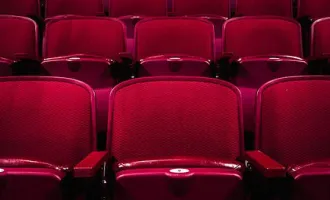Miss Representation: The Truth Ain’t Pretty
As I sat in the Student Health Clinic two weeks ago, I was pleasantly surprised to note the disappearance of all Big Macs (Supersize Me) from the television screen. Instead, a host of shocking statistics streamed by. Did you know “that 65% of women and girls have an eating disorder”? This was news to me.
Next followed a panel of young women discussing the topic of the documentary: how “the media’s limited and often disparaging portrayals of women and girls … make it difficult for women to achieve leadership positions and for the average woman or girl to feel powerful herself” (www.missrepresentation.org).
The last scene I saw before I was called into my appointment was of a teenager asking through her tears, “How long is it going to take for somebody to take a stand?”
Well, here I am, a few weeks later, taking my stand by helping to spread the word about this powerful film.
After my appointment, I immediately went to the check-in window and requested the name of the movie. I was unable to find Miss Representation on NetFlix, but was so curious to watch the rest that I bought it on iTunes and finished it that same day.
Maybe it resonated with me so much because I struggle with a lot of the self-esteem backlash created by the portrayal of women in today’s ads, music videos, movies, video games and TV shows.
This skewed portrayal constantly assaults the minds of girls, well before their brains are fully mature and able to respond to the stimuli by questioning what the images are telling them. Instead, they assimilate the images into what they soon begin to believe their identity as a woman is supposed to be.
I tried to maintain a critical ear about what I was hearing and seeing, playing devil’s advocate in my own mind. When the film showed statistics about the numbers of women in politics in the United States, I thought that the counterargument could be made that maybe there just haven’t been enough qualified women candidates, because most females are simply interested in other things.
I attempted a quick Google search to find the percentage of women who attend professional schools to support my line of argument, and an article from The Atlantic titled, “Why Isn’t Better Education Giving Women More Power?” popped up.
Skimming it, I saw that Garance Franke-Ruta makes many of the observations the film does. Women are subconsciously trained to fit into a certain role. Of course, I know this isn’t true of every woman. Many of the women in the documentary are CEOs, political figures or other powerful figures, and there are many women I can think of in my own life who seem as little preoccupied with the mold into which the media has cast our gender as cockroaches are with the impending nuclear holocaust. However, I do believe that the majority of women in our culture are, at some level, affected.
The current media portrayal of women doesn’t only affect our gender. The film goes into some important discussion of how it changes men’s perceptions of themselves and the women in their lives. My only quibble with the film was that it gave just a cursory exploration of the LGBTQ perspective.
My hope is that by writing this, I can help to spread awareness, and that the next time you watch television or look at a magazine, you start to notice that the same demeaning messages do pop up time and time again. Watch the film.
Agree with me or don’t. If you do, pay it forward. Spread the word to everyone, because it isn’t just important for all men and women to know that females have value outside of beauty and sexuality. The media needs to learn it too and portray us accordingly.
I was at the clinic again last week and they were playing a nature documentary, so I can only hope they cycle through their available videos on different days. I am looking into holding a screening of the film on campus, so look out for future announcements!




